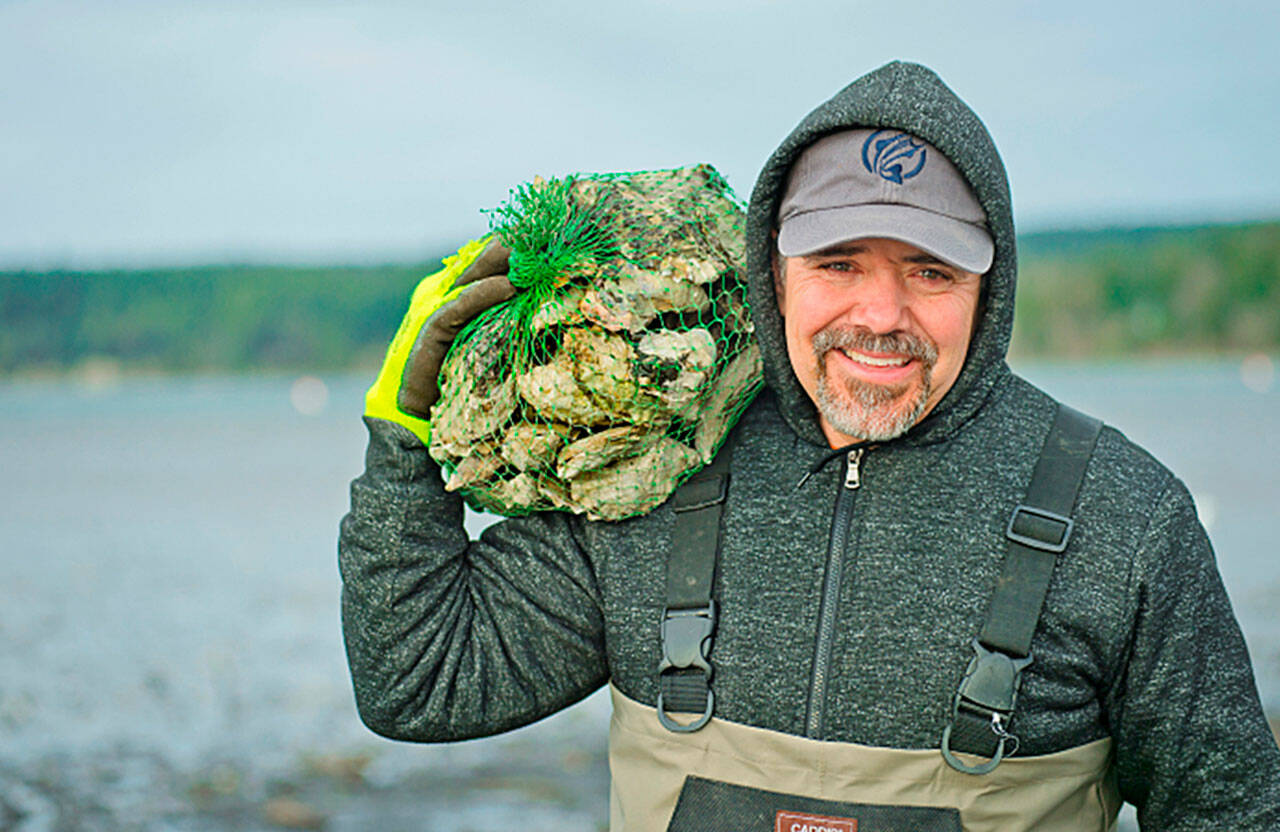The last time Jeanne McKnight saw Kurt Grinnell in April, it was smiles and hugs and a shared idea that the next Northwest Aquaculture Alliance quarterly board meeting would be in Blyn.
“It was our first in-person meeting (in a while),” McKnight said last week. “We were all happy to see each other, a great meeting, a happy time.
“I said, ‘Next time, we’re going to do it at the (Jamestown) tribal headquarters.”
The next morning, McKnight, who works as executive director of the Northwest Aquaculture Alliance, read an email that Grinnell had died in a vehicle accident on his way home.
“I think we were all just stunned and shocked,” McKnight said. “He made such an impact on our organization and our lives.”
Thus, the genesis of the alliance’s efforts to create a scholarship in Grinnell’s name.
The thought, McKnight said, became, “How can we carry out Kurt’s vision?”
The alliance formed an all-volunteer steering committee to form the The Kurt Grinnell Aquaculture Scholarship Foundation — a partnership between The Northwest Aquaculture Alliance and the National Aquaculture Association — and with assent from Grinnell’s family began shaping the scholarship.
The initiative was announced recently by Jim Parsons, an industry leader, scholarship foundation steering committee member, and longtime friend and business partner of Grinnell.
“Kurt embodied the belief of his culture that it is important to plan seven generations ahead,” Parsons said in a story on thefishsite.com.
“He understood that the culture of finfish, shellfish, and aquatic plants was an important solution to the decline in harvest of traditional wild species, and a way for Pacific Northwest Tribes to harvest seafood in their usual and accustomed areas as guaranteed under Federal Treaties.”
Parsons added, “Kurt’s vision was to help other Northwest Tribes see aquaculture as a key to food sovereignty and security—not a threat.”
Following the announcement, Allen noted the tribe would contribute $5,000 in Grinnell’s name.
“We hold our hands up to the vision and spirit Kurt shared with all who knew him,” Allen wrote.
Details of the scholarship — how many scholarships, how much it would fund – are still being worked out, McKnight said, but that the awards would be eligible to any member of a federally-recognized tribe interested in a career in aquaculture.
“Kurt was so committed to education of tribal youth,” McKnight said.
“We agreed that, why not open it up to tribal youth nationwide? Why limit it to the Northwest?”
Scholarships could go to a high school graduate or someone restarting a career, and could help pay for schooling at a university or college or a vocational/trade school, she said.
The committee has added educators and a Grinnell family member to the board to help approve scholarships, she said.
“We’re fundraising right now,” McKnight noted, with an aim of raising $1 million to help create an endowment fund.
Those interested in contributing to the Kurt Grinnell Scholarship can do so at any First Federal Branch.
A website for the scholarship is being created but not available yet.
A 57-year-old fisheries and aquaculture expert with deep familial roots on the North Olympic Peninsula, Grinnell and his wife and business partner, Terri Grinnell, built Jamestown Seafood. He graduated from Port Angeles High School in 1982, and after attending Haskell Indian Nations University and the University of Washington, he returned to the peninsula as an Indian child welfare case worker and chemical dependency counselor.
When Grinnell talked about tribal fisheries and aquaculture, an economic sector that, under his leadership, developed into a multi-million-dollar business, employing about 50 people, he always looked toward the future, Tribal Chairman Ron Allen said in a previous interview.
“He took the name S’Klallam, strong people, very seriously when he talked to me about strong government and self-reliance and talked to me about that vision,” Allen said. “He always talked to me about how fisheries should be part of that vision.”
Grinnell was carrying forward that view on April 20 when he attended the quarterly board meeting of the Northwest Aquaculture Alliance at Trout Lodge in Sumner. On his return trip, his vehicle left a straight portion of Mount Pleasant Road, about a mile from his home, and struck a fence post.
McKnight said Grinnell had a clear vision that aquaculture would not replace the tribe’s traditional ways of fishing or right, but that “we need sustainable aquaculture for food sovereignty.”
“The pandemic showed us that imports are not always secure. We can’t depend on getting food across the border,” she said.



